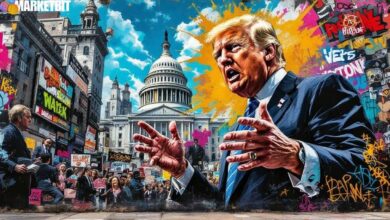South Korea’s Nextrade Attracts Rapid Market Share

- Nextrade captures 30% of trading value with extended hours.
- Rapid growth under strategic leadership since March 2025.
- Impacts on fees, trading volumes, and retail participation.
In March 2025, South Korea’s Nextrade, the first Alternative Trading System, captured 30% of local trading value by extending hours and reducing fees.
Nextrade’s rapid market share increase signals significant disruption, challenging traditional structures like the Korea Exchange, prompting regulatory reviews and competitive fee adjustments.
South Korea’s Nextrade and Market Reshaping
South Korea’s Nextrade has reshaped the local stock market rapidly with its introduction in March 2025. Due to its extended trading hours and reduced fees, Nextrade captured almost 30% of trading value within months.
Nextrade is led by CEO Kim Haksoo, a former financial regulator, highlighting the government’s role in market evolution. Major changes include reduced costs and longer trading hours, challenging the Korea Exchange’s previous dominance. As Kim Haksoo, CEO of Nextrade, stated,
“Our strategy revolves around ensuring transparency while providing robust market access, which we believe is essential for a thriving investment ecosystem.”
Impact on Trading Volumes and Regulatory Adjustments
The immediate effect is a dramatic change in trading volumes, with Nextrade significantly increasing overall liquidity in the Korean market. This has inspired competitive responses from traditional exchanges, like reducing fees after a two-decade span.
Apart from reshaping fee structures, the move challenges existing regulatory frameworks. There is a potential effect on policy reviews concerning market share caps and trading protocols to maintain competitiveness and investor protection.
Institutional Participation and Policy Debates
As liquidity improves, institutional participation in after-hours trading rises, alongside predominant retail investor activity. Nextrade’s market influence is already visible through both retail and institutional enthusiasm for new trading conditions.
The regulatory environment may see evolving adjustments, as policy debates continue on market share limitations and the need for price improvements. Historical trends suggest potential adjustments in trading cost frameworks and operational efficiencies. As Kang Sohyun, Senior Research Fellow at Korea Capital Market Institute, mentioned,
“It’s unprecedented globally. If you look at other similar markets… Nextrade’s expansion has been very rapid.”




